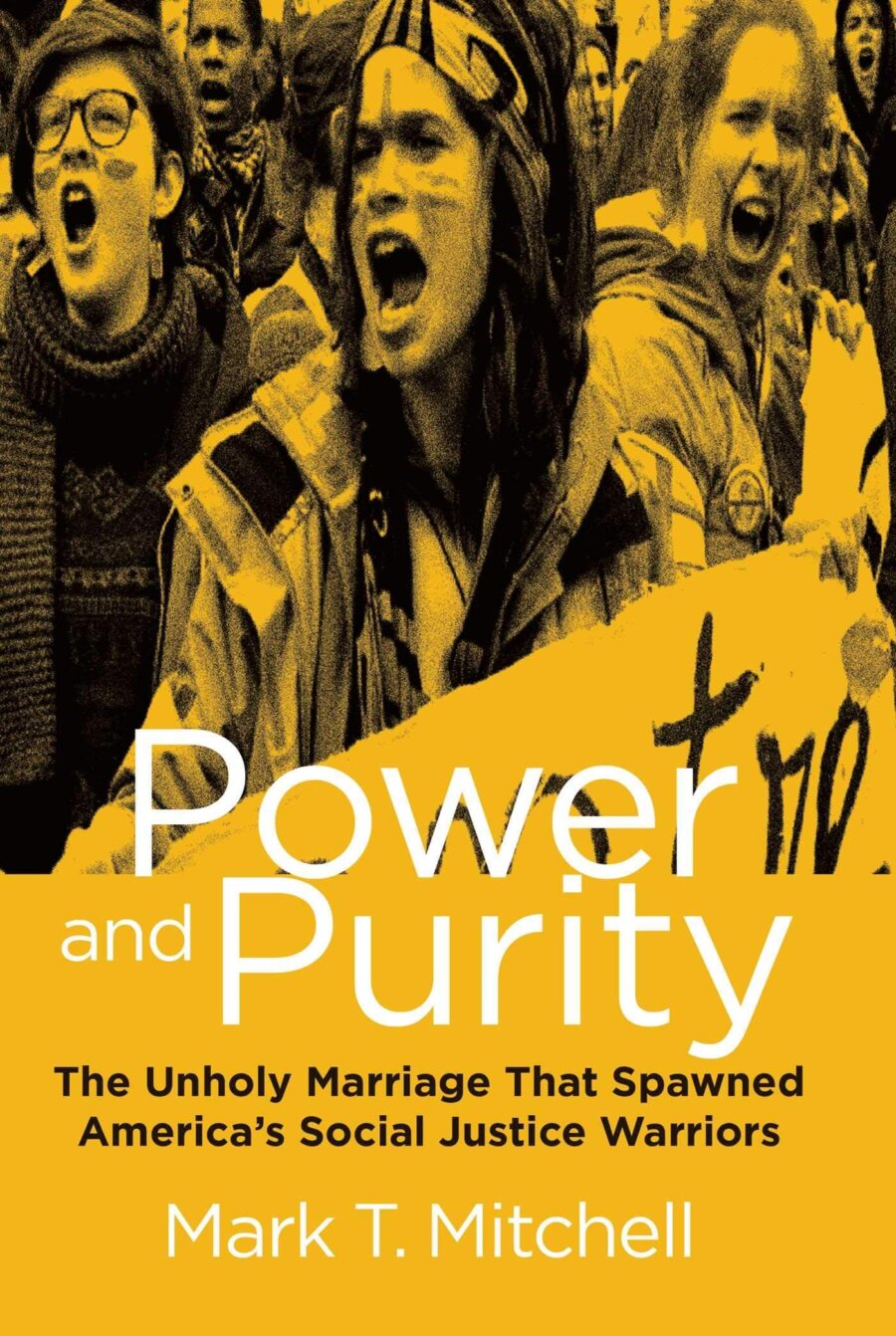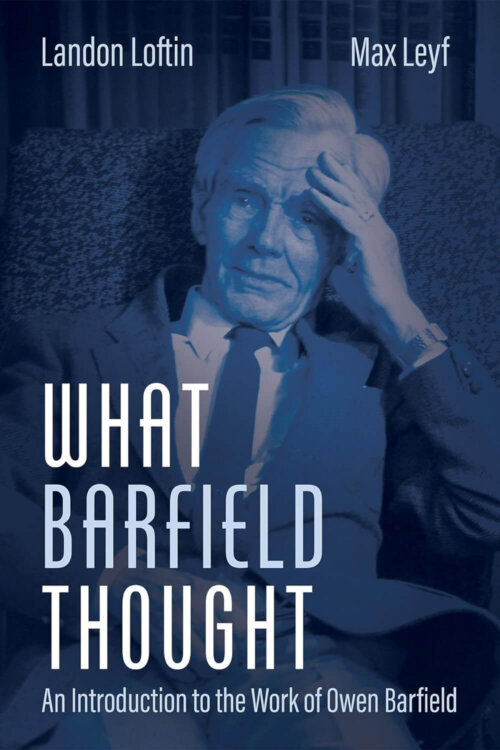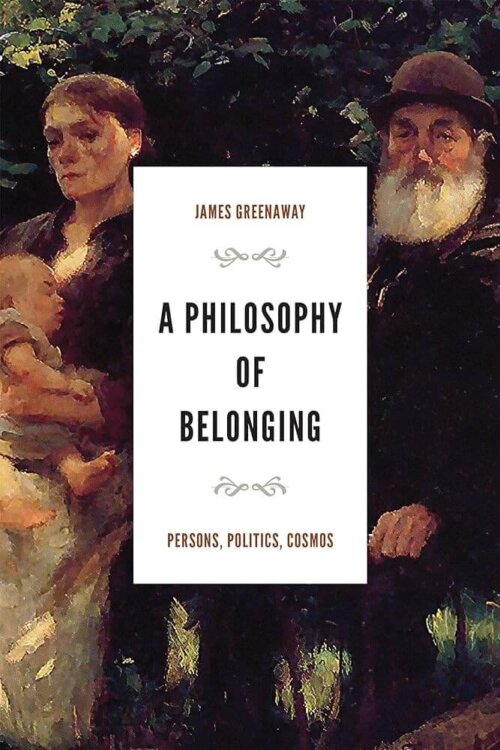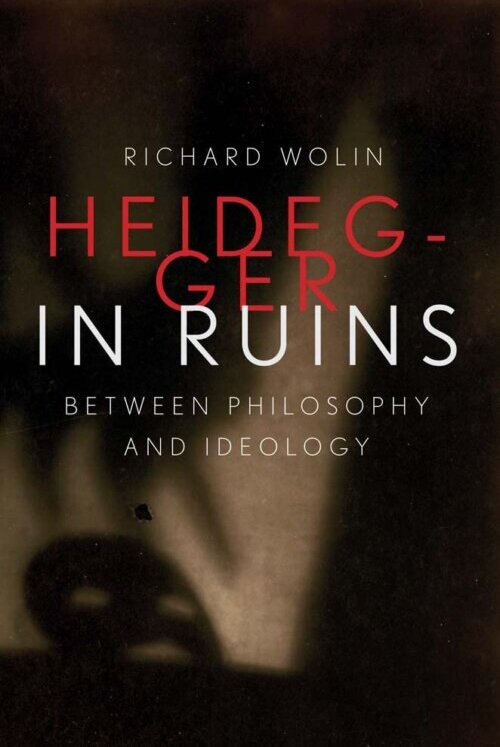Nietzsche, Christ, or Civil War?

Power and Purity: The Unholy Marriage That Spawned America’s Social Justice Warriors. Mark T. Mitchell. Washington, D.C.: Regnery, 2020.
What in hell is going on in America? Mark T. Mitchell’s Power and Purity suggests that the question might be better formulated in P. G. Wodehousean terms as, “What fresh marriage of heaven-and-hell is this?”
The thesis of Mitchell’s short (148 pages) and very readable volume is this. Wokeness and its Social Justice Warrior stormtroopers are the offspring of an unhappy cultural-intellectual union between Friedrich Nietzsche’s relativistic will-to-power and a Puritan version of Christianity. It is not a happy marriage, and the kids are terrorizing Uncle Sam’s entire neighborhood while shouting in quick succession mutually exclusive things they’ve overheard at the dinner table from dad (Listen! There is really only your truth and my truth; stop trying to foist your dogmas on me!) and then mom (We must fight for our rights! We need equality now! Recognize my dignity!).
Perhaps my images are too tame. Mitchell begins his volume not with any charming domestic or neighborhood scenes but with the darker hint that there is something broken in these United States such that there is no neighborhood. “Mainstream” journalists and Democratic pols urge the populace to confront, sometimes violently, the politicians and public servants of whom they disapprove. They also use the pressure of social media mobs and lawyers to get people of whose views they disapprove fired, expelled from schools, or otherwise “cancelled.” This poisonous atmosphere may not extend to every particular neighborhood but to enough neighborhoods such that the people on the ground feel it. “Political opponents are seen as enemies to be destroyed rather than fellow citizens and neighbors.” He cites a 2018 Rasmussen poll indicating 31% of Americans believed a civil war was coming in the next five years.
Mitchell’s dark view is unsurprising and not, in my view, wrong. He identifies the loss of binding agents in the American people: “The American Dream, an image that has loomed large in the past, seems to be fading. The very definition of citizenship is being questioned. What binds us together? A common creed? A common history? A common religion or culture? None of these seems adequate today. And it goes without saying that mutual disdain is an inadequate binding agent.”
What still might bind us, a generalized Christian view of morality, does not seem to have the capacity to do so. We are, says Mitchell, echoing Flannery O’Connor’s words about the South, a “Christ-haunted society.” But Christ-haunted is not the same as Christ-filled. The specter that pervades the house is a Puritan version of morality with all the emphasis on sin and judgment and zero percent on forgiveness and redemption. At best this drink is the New Hemlock© and not the cup of salvation. It doesn’t need forgiveness, the SJWs think, because their emphasis on sin is almost always on other people’s sins and institutional and structural sins, i.e., on systems that can be blamed and destroyed when there is not an actual culpable person to be found.
Of course this view of the world does not actually sit comfortably with the Nietzschean elements. Mitchell walks us through an understanding of the German’s thought. Contrary to the Greeks, Romans, and Christians (here Mitchell could have added the Chinese and other philosophical traditions), Nietzsche did not believe that there was a nature or reality to conform ourselves to. He took the non-existence of the God of the Bible or even that of the Greek philosophers seriously. “If there is no God,” writes Mitchell of Nietzsche, “everything must change.” And that means that Christian morality—and “European morality,” which is just a somewhat secularized version of it—must be rubbished. That means all the stuff we supposedly care about in the modern world—truth, justice, rights, equality, the fate of the weakest among us—don’t really mean anything. For Nietzsche, they are and have been used for the weak to gain the upper hand in society, but to think that they are more than chits used to gain power just won’t do. People often talk of relativism, but Nietzsche really believed it.
That’s where the SJWs and Wokesters would meet with Nietzsche’s disdain, Mitchell thinks. Some of them actually believe in all these categories that don’t make sense without God. Some of them might even have fair and even charitable impulses. I know I have met such people; an old friend from grade school is now an organizer for Antifa. Before I left Facebook, we engaged in one last cyber-tussle. He really does think he’s serving the poor and the downtrodden and building “true democracy.” Friedrich would have called him a poor excuse for an Overman.
The problem for such friends of mine is that they have successfully dissolved all of what Mitchell calls “the illiberal ingredients” that go into making up a polity of liberal institutions and procedures. He includes “tradition, authority, a sense of responsibility to future generations.” Most importantly it includes the notion of the image of God, which grounds that most difficult to prove of concepts, human equality, and that rather slippery concept of freedom. Without divine authority for equality or freedom, the first disappears while the second becomes unhinged. Mitchell says that “we see the devastating effects of the will to power married to a moral absolutism lacking any justification other than individual will subconsciously energized by a rejected Christian past.”
That destruction is sad because it is done in the name of progress. But progress, as Chesterton reminds us, remains dependent on seeing what direction is “forward.” Having rejected the dialogue between biblical and philosophical views about what humanity is and what society should look like, they lurch from one direction to another and create new enemies as quickly as they create new identities. “Gay rights” moves on to “gender” as a mystical interior feeling. This means that the woman who is attracted to women is now a bigot for refusing the lesbian trapped in a man’s body. Nietzsche would approve the manipulation of language to gain power, but he would think them fools for their belief that what they are doing has something to do with “truth” and the “marginalized” and also for their manifest lack of excellence.
Education (as presently practiced in most institutions) is not really a source of a solution since much of the confusion started there. Mitchell rightly observes of the university scene that it “is not liberal and often not even servile.” They don’t provide a coherent view of the world nor any really bankable skills in too many cases. Science might provide a partial exception because many scientists “remain deeply infected by the will to truth even though a commitment to truth undermines even more vital goals.” Alas, the behavior of the scientific community concerning Covid-19 has shown that this is one infection that may not have as much staying power as Mitchell believes. Big Tech, which Mitchell is not so sanguine about, is even less likely to keep the infection. As for most professors, what they have done is bless the confused marriage of non-objective morality and the moral obligation to support whatever cause they support because “it’s the right thing to do.” I was amused last year by professors who were glad we were not taking the risk of having students in the classroom but proud of their students who packed into the crowds at the George Floyd riots.
Nietzsche might like the tech bros, but he would hate these pedants.
That’s where the book ends. Mitchell’s final chapter is titled “In Search of a Saving Myth.” We can’t survive while ruled by “Nietzschean Puritans.” Most people do not want to go the “full Nietzsche.” But can a Christian vision again animate a country where so many “have dabbled with Nietzsche’s ideas”? The SJWs think they are fighting for “democracy, equality, social justice, and tolerance,” but they don’t want to give up transvaluating the values that get in the way of their own particular desires to define themselves along the lines of race, sex, or “gender.” Nietzsche would despise them, Christ loves them, and they. . .they are stuck in the middle, not really choosing and thus “doomed to intellectual incoherence” and burdened with the “perpetual frustration and social unrest” that is the only thing such incoherence can breed.
Will we see a Fourth Great Awakening of some sort? Or will the unrest being created resolve into a Nietzschean dystopia run by t-shirt wearing programmers in collusion with the government (or China’s)? Or will the hostility bred by confusion lead us down the path of a break-up of the U. S.? The next time Rasmussen asked those questions about an expected civil war was in 2020, shortly before publication of this book. By that time the percentage had gone up to 34%.
Mitchell doesn’t say what he thinks is most likely, but he thinks a choice will have to be made. Pray God we choose wisely.




